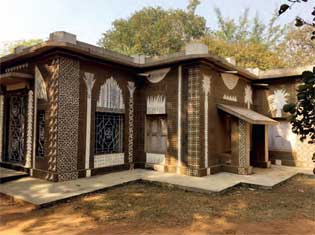Usha Raman
The education landscape as we know it today has been shaped over the years by diverse forces — individuals, movements, ideas and institutions. How familiar are we with some of these?

- The Gandhian idea of education was as a force for social transformation, a concept taken forward by Vinobha Bhave, in which the distinctions between teaching and learning, knowledge and work, were eliminated. While these principles were elucidated in great detail by many Gandhians who established schools, they failed to take hold in modern schools to any great extent. What is the name by which Gandhi’s idea of basic education is known?
- This Italian educationist first trained in medicine, and worked with children with developmental delays for many years. It was this experience that led her to develop methods and materials for use with children with special needs, and later extend these approaches to all children. Who was this educationist, after whom an important system of early childhood education is named?
- “…English is better worth knowing than Sanskrit or Arabic; that the natives are desirous to be taught English, and are not desirous to be taught Sanskrit or Arabic; …it is possible to make natives of this country thoroughly good English scholars, and that to this end our efforts ought to be directed.” The famous document from which this quote is taken is thought to be the basis for the adoption of English as the primary medium of instruction in elite Indian schools. What is this statement, widely critiqued by educationists as the source of a persistent colonial legacy?
- This university, famous for its focus on music and the arts, was started in 1921 by India’s most celebrated poet. Located on what was originally a family estate flanked by two rivers, the area was at one time the den of a gang of notorious dacoits. What is the name of this university, which roughly translates to ‘abode of peace’?
- Groomed to be a spiritual master by Annie Besant, this philosopher-speaker-writer was instrumental in establishing a network of schools that adopted a radical approach to schooling. Even though he rejected the mantle of spiritual teacher, his ideas continue to be hugely influential in education. Who was this individual, who emphasized that the core of education must be “freedom from fear”?
- The first President of India to die while in office, this individual was responsible for establishing what has become one of the most prestigious minority universities in the country. He was just 23 years old when he, along with a group of friends, set up the National Muslim University, which later became Jamia MiliaIslamia. Name this individual, who was India’s third president?
- Popular cinema can sometimes bring awareness to issues that academics and activists have unsuccessfully tried to popularize for decades. The film Taare Zameen Par, starring Bollywood actor Aamir Khan, helped create awareness about this particular condition which leads to children falling behind if not accommodated from an early stage. What is this learning difficulty?
- This national institution, which enrolls nearly 3.5 lakh students every year, is considered the largest such system in the world. It was established in 1989 in order to make secondary and senior secondary education accessible to students from marginalized groups and those who are unable to fulfil the requirements of conventional schooling. What is this organization, which, some would argue, is not really as “open” as its name might imply?
- Meaning “first” in Sanskrit, this organization has come to be known for an annual exercise that turns a critical eye on basic learning outcomes in government schools across the country. The main emphasis through its programmes has been on “teaching at the right level”, or meeting children where they are in terms of learning stage. What is this organization and the annual exercise they are known for?
- One of the most contentious and problematic issues in school education has been that of language. In 1968, a policy was announced that was aimed at arriving at a compromise between the need to become globally competitive (with English) and locally relevant (with the mothertongue). What was this approach, that continues to be a part of NEP 2020 but has attracted criticism from states such as Tamil Nadu?
Answers: NaiTaleem 2. Maria Montessori 3. Macaulay’s Minute 4. Santiniketan 5. Jiddu Krishnamurti 6. Zakir Husain 7. Dyslexia 8. National Institute of Open Schooling 9. Pratham 10. Three language policy
